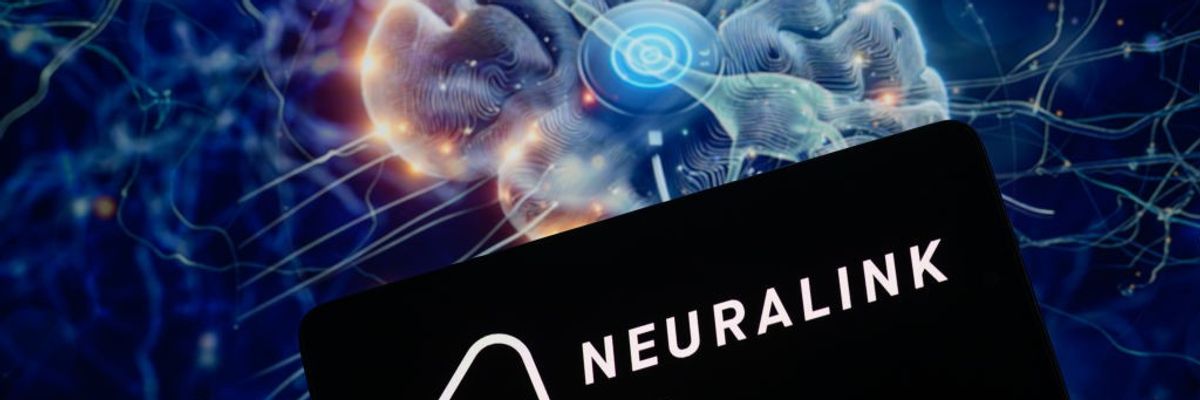A U.S. watchdog group and other critics are responding with alarm to reporting that federal employees reviewing applications related to a brain implant developed by Elon Musk's company Neuralink are among those fired as part of the billionaire and President Donald Trump's sweeping mission to gut the government workforce.
Despite business conflicts and a recent White House court declaration that generated some confusion, Musk is the head of Trump's so-called Department of Government Efficiency (DOGE), which has infiltrated and is working to purge employees from several agencies—including the U.S. Food and Drug Administration (FDA), according to Reuters.
Citing two unnamed sources, the news agency reported Monday that "the cuts included about 20 people in the FDA's Office of Neurological and Physical Medicine Devices, several of whom worked on Neuralink... That division includes reviewers overseeing clinical trial applications by Neuralink and other companies making so-called brain-computer interface devices."
While the sources "said they did not believe the employees were specifically targeted because of their work on Neuralink's applications," they and other experts warned the firings "will hamper the agency's ability to quickly and safely process medical device applications of all sorts," Reuters noted.
Dr. Robert Steinbrook, director of Public Citizen's Health Research Group, said in Wednesday statement that "regardless of the reasons the FDA medical device center employees were fired, Elon Musk and the so-called Department of Government Efficiency have a blatant conflict of interest because the agency's Center for Devices and Radiological Health is regulating the implantable brain-computer interface made by one of Musk's companies."
"Moreover, by eviscerating the FDA's device staff, DOGE operatives are impeding the vital work of protecting the participants in the Neuralink trial and protecting the public from medical devices that are harmful or don't work," he continued. "Paradoxically, with fewer staff, the FDA's review of the Neuralink device may be impeded, which makes no sense."
" DOGE operatives should stop interfering with the FDA's public health mission of assuring the safety and effectiveness of drugs and medical devices," Steinbrook added. "This is yet the latest example of how Musk's involvement with DOGE undermines federal regulators, from the Consumer Financial Protection Bureau to the FDA."
Various reports from the past month have highlighted how Trump's return to power has benefited Musk and his businesses, including SpaceX and the publicly traded electric vehicle maker Tesla.
As Gizmodo detailed Tuesday:
Neuralink in particular seems to have benefited from efforts to squash watchdogs. Last month, the inspector general at the U.S. Department of Agriculture had to be removed from her office by security after refusing to comply with her termination, which she believed was illegal. She happened to be heading up an investigation into Neuralink looking into whether the company was violating animal welfare rules related to its tests on animal subjects.
The FDA, too, has been looking into similar issues. Last year, the agency found that Neuralink's animal labs engaged in "objectionable conditions or practices" and urged the company to address the issues—but did not issue any punitive actions related to the investigation.
Neuralink and the FDA also had a standoff over allowing the company to move forward with human trials, a request that the FDA rejected over safety risks in 2022 before finally allowing limited trials to move forward a year later. In 2024, the FDA even gave Neuralink its "breakthrough device" designation, which allows for a speedier review process. The only thing faster might be no review at all.
A Quinnipiac University national poll released Wednesday shows that 50% of registered voters across the political spectrum have an unfavorable opinion of Musk, 54% disapprove of the richest person on Earth "playing a prominent role in the Trump administration," and 55% think he "has too much power in making decisions affecting the United States."




